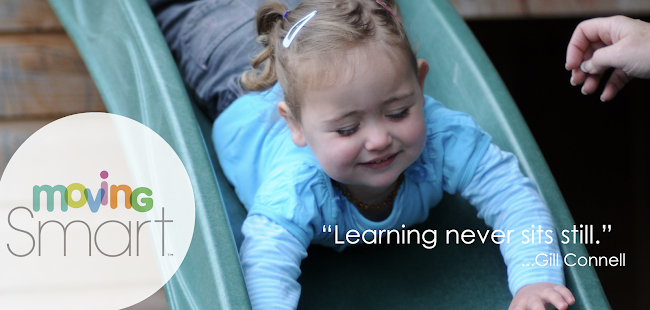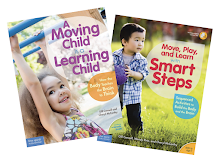In 2010, Christchurch, New Zealand was hit with a devastating earthquake and more than 14,000 aftershocks over the next two years. At the time, I wrote about the impact of stress on young children, wondering whether there would be lasting effects. There were.
According to Dr. Kathleen Liberty, Professor of Health Sciences at the University of Canterbury, “The impact of the quakes became apparent as children began entering school." Initial findings from Liberty’s post-earthquake study found that, compared to the baseline study, children who entered school after the earthquakes (including those who were in utero at the time) were four to five times more likely to present with learning or behavioural issues. (Read full article here.)
Today, there is war in Ukraine. A vicious, senseless, man-made earthquake. Our hearts turn again to the children, for what they endure today, and for the future that is now so uncertain.
In their honor, here is our original post...
UNDERSTANDING CHILDREN & STRESS
Stress can come in many forms, not just earthquakes. And it leaves a lasting, negative imprint on children’s early development. Research shows how important it is to provide a calm and loving environment in order to help insure children’s emotional and social well-being, and surprisingly, children’s CAPACITY TO LEARN...
Scientists studying stress have shown that when a human being feels threatened – physically or emotionally – a chain reaction of chemicals is released in the brain and sent coursing through the body. In doing this, the brain is fulfilling it’s first, primary function – survival. Stress hormones such as adrenalin and cortisol are the body’s physiological alarm bell signaling danger. And it doesn’t matter whether that danger is defined as an earthquake, public speaking, a bad report card or a boo-boo. The body responds physiologically pretty much the same way every time.
So here’s what happens. When these hormones are triggered, the brain goes into a primitive state known as “fight or flight,” pouring nearly all of its energy down into the brain stem – the area that controls automated functions such as breathing and heart rate. At the same time, the senses are heightened and blood rushes into the muscles (which feels like shivering) in readiness to “fight” or “flee” the danger. Now, because of this rush down into the brain stem, the brain has difficulty accessing the cortex – the higher region of the brain that governs thinking and executive function. If you’ve ever felt highly stressed or scared you may remember feeling an inability to think clearly. And in fact, that’s exactly what’s happened, because your brain, without your permission, went on “automatic survival pilot.”
STRESS INTERRUPTS LEARNING
Of course, I’m thumbnailing years of essential research here, but the long and the short of it is this: when we are under stress the thinking part of our brain is more or less de-activated. And when we can’t think, we can’t learn.
Further, when cortisol is present in the system for prolonged periods, science has shown it may have long-term damaging effects including depressed immune responses which can effect health, and memory impediments which can impact learning.
So, the next question is, what is stress for little ones?
DEFINING STRESS
Children are small, vulnerable, dependent, needs-driven creatures. Without years of experience in understanding the world around them, they stress easily (hence, all the crying) over a variety of factors, including hunger, discomfort/pain, separation, and both instinctual and acquired fears. As a parent or caregiver, managing their stress is an essential part of helping your child flourish.
AT FIRST…
For newborns and infants, I believe there’s only one approach: meet your child’s every need. Making sure they are well fed, warm, dry, comfortable, and connected to you (especially when they are in need) is essential for controlling newborn stress levels. There are theories that babies should be left to cry in order to learn to self-calm. But the physics simply don’t work in my opinion. The more stress hormones that build up in their tiny bodies, the harder (and longer) it will take to calm down.
SELF-CALMING
As children grow and are better able to communicate, they may now be entering a time when they can explore the power to calm themselves – an essential step on the road to developing independence and self-confidence. Experts call this self-calming.
Your role is just as important during this stage, but frankly, a little less clear. Here you need to give them the time and space they need for self-assessment while still being right there in case things go off the rails. By example…
I’ve seen parents react when a little one trips and falls, encouraging them by saying, “You’re OK,” as the child gets back to their feet. I applaud the encouragement, of course, but in this scenario, the child isn’t given the opportunity to assess their own “Okness.” Instead, I recommend a slightly different approach. Rather than say, “You’re OK,” ask them, “Are you OK?” This does three things:
1. It respects your child’s ability to assess their own feelings
2. Shows them you have confidence in them and builds self-esteem
3. Reassures them you’re right there if they decides they needs you.
YOUR STRESS
Even the youngest babies can read your stress levels, so managing your stress is equally important. If you are calm and confident, your child is more likely to be relaxed, because just as in all relationships, emotions fuel emotions, positively or negatively. And while I realize staying level and calm around your child is not always easy, it never pays to add fuel to their “stress fire.”
Stress is a fact of life, and helping your child learn to cope with her feelings is a balancing act you will play out time and again. And no, the two of you aren’t going to get it right every time. But instilling confidence in them while making sure they know you’re always there when needed, is the best start you can give them on the road to independence, and the ability to manage stress in multiple situations, with or without you.
Helping children calm down from a stressful moment in the day takes love and attention. And sometimes you can even help the process along with a little humor.
Next time your little one’s Grin goes missing, try this game. As you recite the poem, search all over your child (and add a little tickle here and there) and before you know it, that grin will come running back! Note: please, feel free to make up your own words to match whatever fits your particular situation. And no, it doesn’t have to rhyme.
And after you’ve found your child's Grin, reverse roles and have them find your Grin!
FINDING GRIN
Oh, where did Grin go?
I do miss it so.
Did it flap like a crow?
Is that it on your toe?
Did it buzz like bee?
Is that it on your knee?
Did it hop like a bunny?
Is that it on your tummy?
Oh, wait!
Now I see.
Here it comes!
Right towards me!
Welcome back,
Great big Grin.
There it is!
Above your chin!


















No comments:
Post a Comment